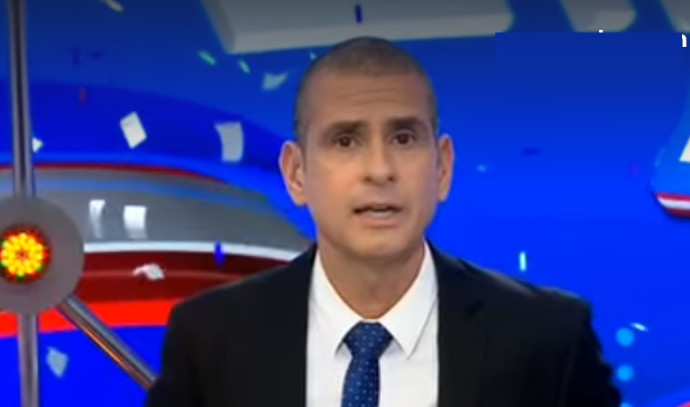Judge Abigail Cohen, vice president of the Tel Aviv District Court, ruled that the Keshet company would compensate Bnei Katzover, a settlement activist, with fifty thousand shekels. The decision came following a defamation lawsuit filed by Katzover against Keshet Broadcasting regarding a skit that was broadcast on the program “Eretz Nehederet,” in which the picture of the petitioner appeared with the caption: “Grandpa Pogrom air-conditioned the settlement.” Katzover’s claim was initially dismissed in a lower court, but he did not give up and appealed to the district court.
The story begins on February 27, 2017, against the background of the evacuation of the Amona outpost that was at the heart of the public discourse, then Keshet produced and aired a sketch on the program “Great Country”, which was also published on the Mako website shortly after the program aired. In the sketch, Katzover’s picture appeared for about two seconds, without mentioning his name, with the caption “Grandpa Pogrom”, with one of the actors in the background describing the appellant as a member of the imaginary community they are establishing, stating his role as “community air conditioner”. Source of archives.
Katzover claimed that the original passages, which included acts of violence, were attached to the staged sketch and linked him to these acts, without him having anything to do with them at all, and therefore he claimed there was no room to include them in the sketch.
The lawsuit alleges that the publication of the sketch violated the Defamation Prohibition Law and that the plan was intended to humiliate Katzover in the eyes of the public. On the other hand, the program “Great Country” claimed that it is a satirical program and the sketch is a distinctly satirical sketch.
Judge Cohen ruled in the verdict that: “Actually presenting Katzover’s true picture in a sketch with the caption” Grandpa Pogrom “, along with archive footage showing acts of violence against body and property as well as a staged sketch showing young people performing the same serious acts could certainly humiliate the appellant In the eyes of the people and his contempt, and it is clear that the publication in this case is “defamation.”
She added: “The sketch is mainly satirical but the appellant’s picture is not part of the satire or the staged passage presented in the sketch. There is no reason to absolve the respondent from liability for publishing defamation only since it is a satire program.
Vice President Cohen concluded: “After considering all the circumstances, including the status of the appellant, the distribution or rating of such publication on the” Wonderland “program and on the website, as well as the fact that the program itself is a satirical program, even if the appellant was not Such, as well as the appellant’s inclusion in the sketch for a period of less than two seconds, I find it appropriate to oblige the respondent to pay the appellant compensation in the amount of NIS 50,000. “
Adv. Tzuriel Hezi represented Bnei Katzover, Keshet Broadcasting was represented by attorneys Moti Arad and Adv. Mika Shalev.
